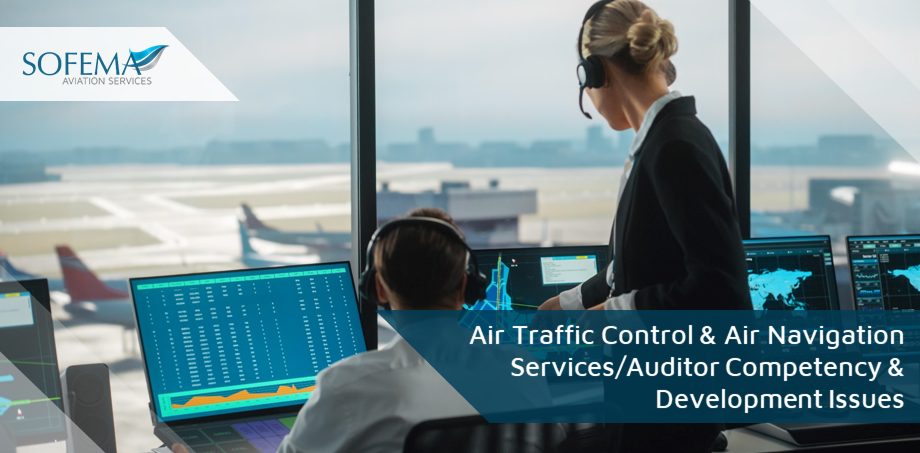Sofema Aviation Services (SAS) www.sassofia.com Considers Auditor Competence concern items related to the performance of EASA Air Traffic Control and Air Navigation Services – ATC & ANS Audits
Introduction
Auditor competency and development play a significant part in delivering effective audits within the ATC & ANS environment.
In conclusion, the performance of EASA-compliant audits of ATC and ANS is heavily influenced by the competency and development of auditors. Ensuring that auditors are well-trained, experienced, and continuously updated is crucial for the safety and efficiency of air traffic operations in Europe.
The following elements may be considered as relevant to the performance of the Audit:
- The complexity of ATC and ANS systems requires auditors to have a deep understanding of the technical, operational, and regulatory aspects.
o Without the right competency, auditors might miss critical non-compliances or misunderstand the implications of certain findings.
- Auditors need to have an appropriate level of experience and auditor training to ensure that they have the necessary knowledge and skills to conduct thorough and effective audits.
o Continuous training is also essential to keep auditors updated with the latest technologies, procedures, and regulations.
- While theoretical knowledge is essential, hands-on experience in ATC and ANS operations provides auditors with practical insights.
o This experience helps them understand the real-world challenges and nuances of the systems they are auditing.
- Technical knowledge is crucial, but auditors also need soft skills such as communication, critical thinking, and diplomacy.
o They must be able to interact effectively with ATC and ANS personnel, ask the right questions, and present their findings in a clear and constructive manner.
- Auditors should engage in continuous professional development to stay updated and maintain their competency.
- A robust feedback mechanism is essential to improve the audit process. Feedback from audited organizations, as well as peer reviews, can provide valuable insights into areas where auditors might need additional training or support.
Challenges Related to Auditor Competency and Development Include:
- Keeping up with rapid technological advancements in ATC and ANS.
- Ensuring that auditors remain impartial and unbiased, especially if they have previous affiliations with the entities they are auditing.
- The increasing reliance on digital systems and cybersecurity concerns in ATC and ANS operations means that auditors need to be well-versed in IT and cybersecurity protocols.
In summary, while the technical aspects of ATC and ANS audits are undeniably crucial, the auditors play a vital role. Their continuous development, training, and adherence to the highest standards of professionalism ensure the best possible outcomes.
Next Steps
Please see the following course EASA Quality Assurance Auditing Introduction for Air Navigation Services (ANS) – 3 Days
Follow this link to our Library to find & Download related documents for Free. Visit our websites www.sassofia.com and www.sofemaonline.com or email team@sassofia.com
Tags:
regulatory aspects, peer reviews, real-world challenges, latest technologies, Continuous training, non-compliances, traffic operations, continuous development, cybersecurity concerns, digital systems, ANS personnel, EASA, cybersecurity protocols, possible outcomes, SAS Library, Air Traffic Control, Soft Skills, SAS blogs, Air Navigation Services, EASA Quality Assurance Auditing, Training





